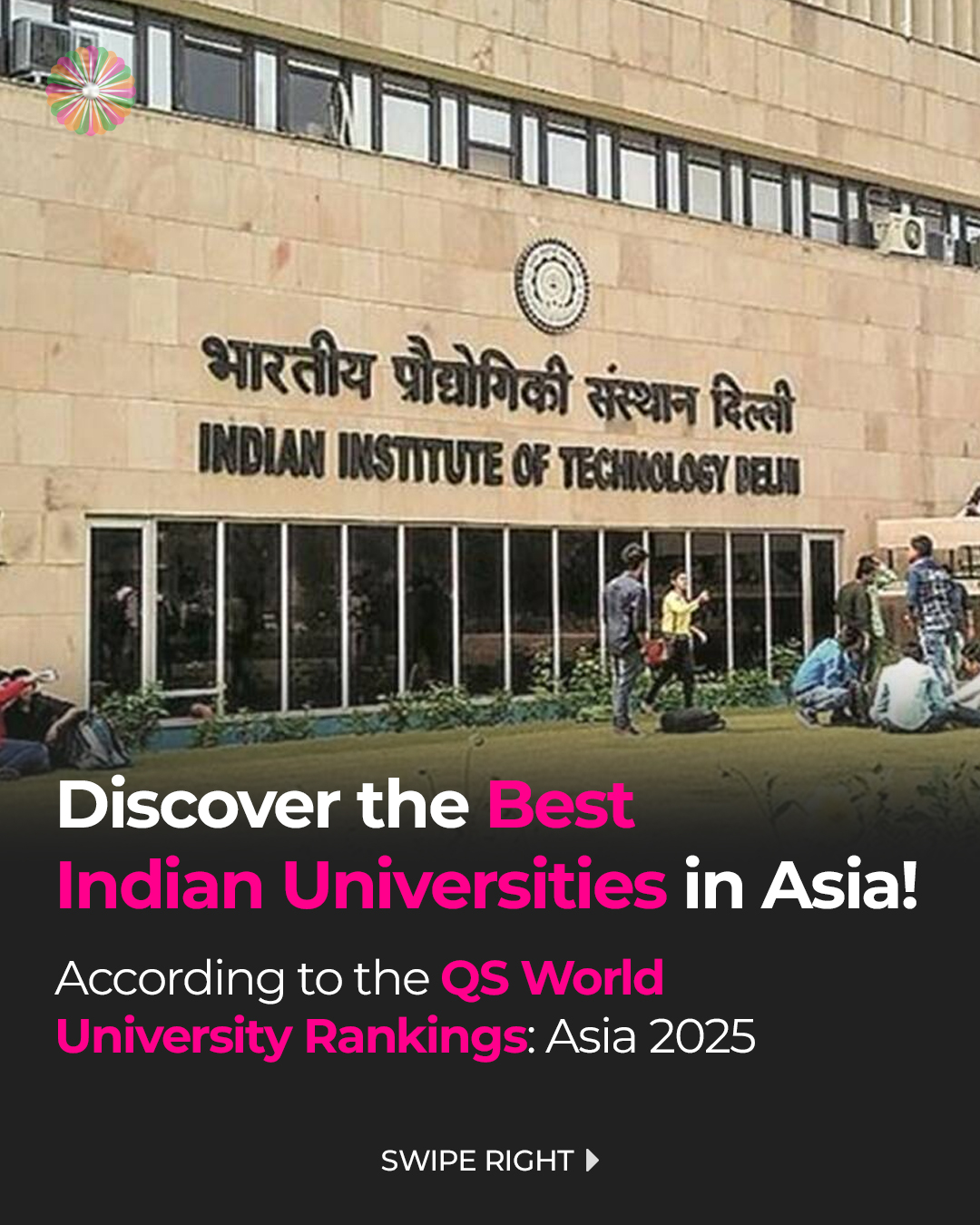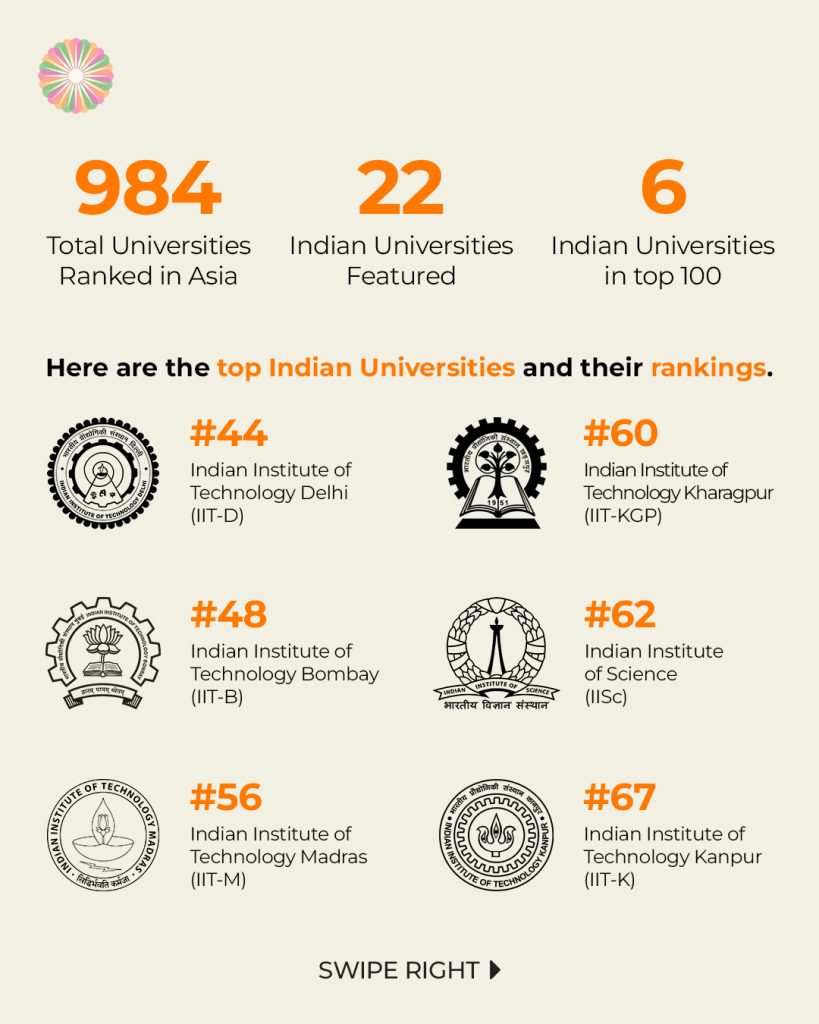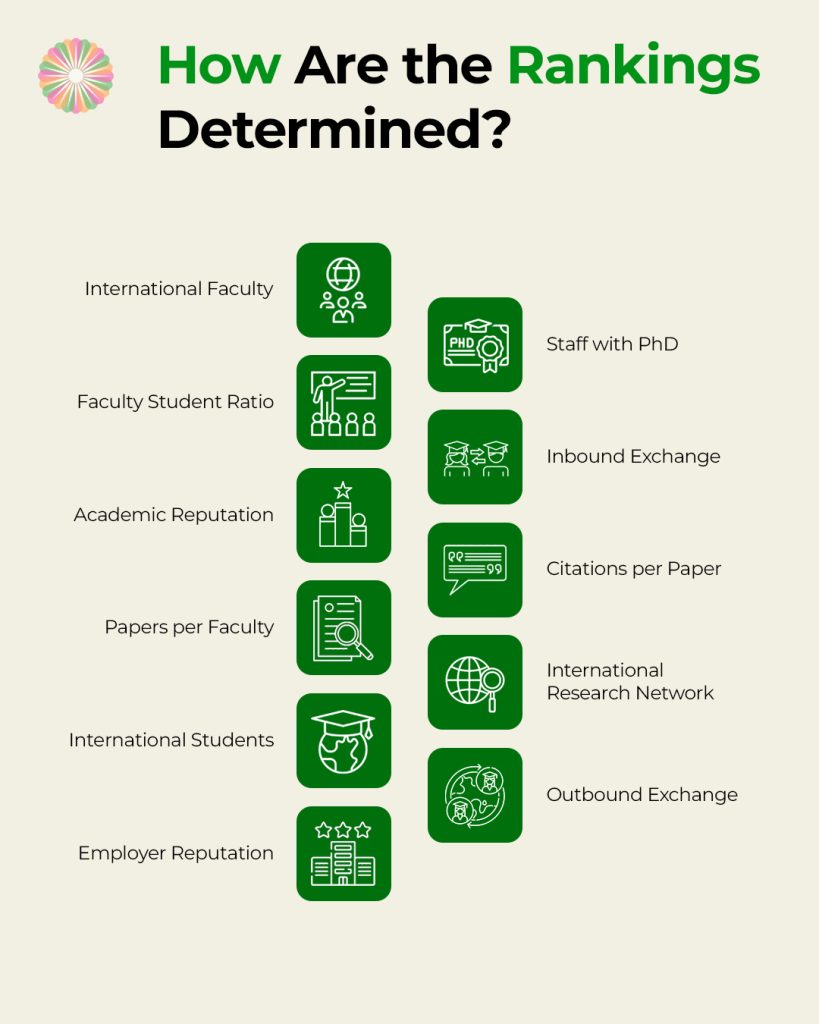

India’s higher education sector is making waves in the latest QS World University Rankings: Asia 2025, with six Indian institutions securing spots in the top 100. But beyond the numbers, what does this mean for India’s global standing in education?
Experts say India’s steady climb in these rankings reflects a decade-long investment in research, global collaborations, and talent development, especially in STEM fields. Institutes like IIT Delhi, IIT Bombay, and IISc continue to attract international faculty, boost research output, and strengthen ties with industries, improving their performance across key metrics like academic reputation, citations per paper, and employer satisfaction.

However, the data also highlights India’s concentration of excellence within a few elite institutes, while hundreds of other universities still lag in faculty-student ratios, global outreach, and research impact. As Asian countries like China, Singapore, and South Korea continue to dominate the top spots, the challenge for India is clear—scale up quality and innovation across more institutions, not just the IITs and IISc.

With India positioning itself as a global education hub, these rankings offer both validation and a roadmap for where more work is needed—especially in fostering interdisciplinary research, faculty diversity, and international partnerships.
Are You Passionate About India's Future? Join Our Community to Collaborate, Advocate, and Create Positive Change.